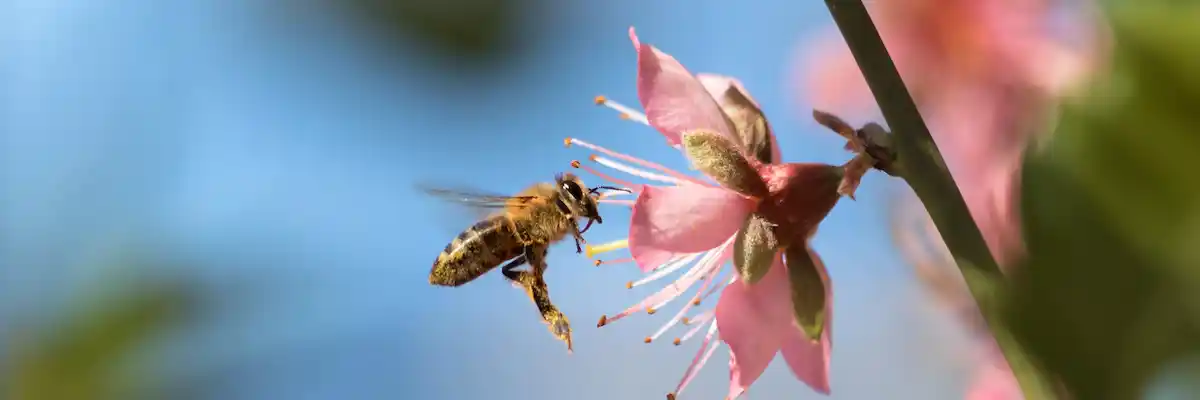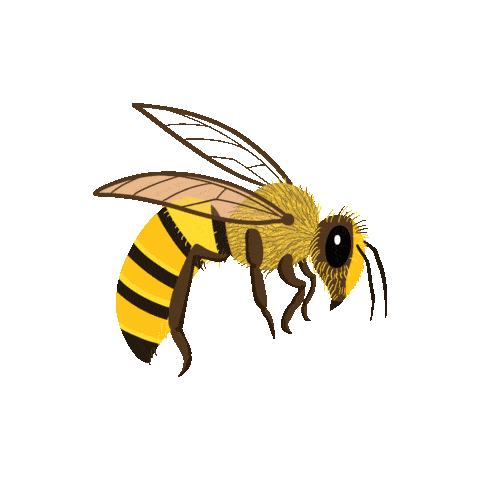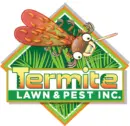April Showers Brought May Flowers, But Flowers May Bring the Bees

While bees are vital for our ecosystem, we understand that some individuals (including our valued clients) prefer a bee-free environment due to allergies or personal preferences. So let’s explore some bee-repelling plant options to keep your garden buzzing with beauty, minus the bees!
Understanding Bee Behavior
Bees are naturally attracted to flowers that have specific colors and smells. These signals to the bees that the flowers may contain nectar or pollen. Bees can see a wide range of colors. They are most attracted to blue, purple and yellow, and avoid red. They also have a strong sense of smell and are drawn to some fragrant plants while repelled by others.
Plants to Avoid
To reduce the number of bees in your yard, it’s a good idea to avoid plants that attract them. These include Florida greeneyes, partridge pea, purple thistle, false rosemary, gayfeather, sunflowers, and coneflowers. These flowers are known to attract bees because of their bright colors and attractive scents. While these flowers are beautiful, they’re not ideal for gardeners who are allergic to bees.

Effective Bee Repelling Plants for Your Garden
Here are some plants that repel bees and wasps but also add some character to your yard:
Geranium (Pelargonium X hortorum): Red geraniums, in particular, can help repel bees since bees cannot see the color red. While it might seem illogical for a flower to deter bees, geraniums contain minimal pollen. They also emit a scent that bees find unappealing.
Marigold (Tagetes): Marigolds, known for their pest-repelling properties, not only discourage bees but also add a pop of color to your garden beds. Marigold is a colorful addition to any garden, and its scent repels insects as well. While it may not deter nectar-seeking honeybees, it is unattractive to wasps. When planted in the ground, marigolds require little care. Like geraniums, consider using red marigolds to deter bees effectively.
Basil (Ocimum basilicum): Beyond its culinary uses, basil emits a strong aroma that can deter bees and other insects, making it a versatile addition to your garden and your plate.
- Mint (Mentha): Although popular among humans, stinging pests do not enjoy the smell of mint.
- Citronella (Cymbopogon nardus): While citronella is most well-known for its ability to repel mosquitoes, its strong odor can also repel wasps and bees.
So while bees are an important part of our environment, it’s no surprise that some people prefer a garden that’s free of bees, whether it’s because they’re allergic to them or just don’t want to deal with them on a regular basis. With the right combination of bee-resistant plants and strategic gardening techniques, you’ll be able to create a beautiful landscape that meets everyone’s needs. However, don’t forget to balance pest management with pollinator support to encourage biodiversity and maintain your garden’s health.
If you struggle with bees or wasps in spite of these tips or you discover a hive/nest on your property, contact Termite Lawn and Pest for comprehensive pest control solutions: (407) 447-7378
